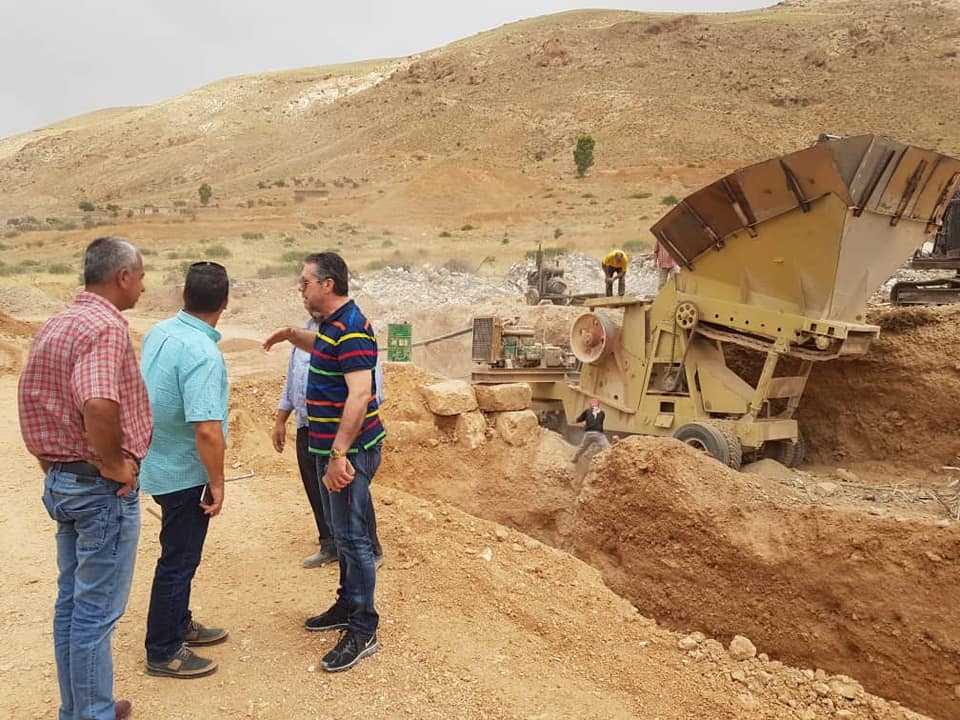



The Syrian regime’s government plans to establish a residential suburb under the name of “Barada Suburb” in the vicinity of Ain al-Fijeh town in Rif Dimashq province, southern Syria.
On 15 August, the Syrian Prime Ministry’s “Facebook” account published that the government’s “Economic Committee” agreed to ratify the contract between Rif Dimashq province and the “General Company for Engineering Studies” to prepare the regulatory, detailed, and executive studies of the Wadi Barada suburb in Wadi Bassima area on the Syrian-Lebanese border.
The government’s plan aims to provide alternative housing in the Ain al-Fijeh surroundings after adopting the evaluation, development, and organization study results of Ain al-Fijeh, Bassima, and Deir Muqrin areas in Rif Dimashq province.
The Syrian regime’s government has promised to compensate the residents of the Ain al-Fijeh and Bassima areas of Rif Dimashq province with alternative residential suburbs, after their displacement and the regime’s appropriation of land since early 2017.
The government planned to establish an alternative residential suburb to compensate the residents who lost their homes due to the appropriation law on their property that reached the residential districts under the pretext of expanding the Ain al-Fijeh’s campus.
The government demolished houses and residential neighborhoods in the villages of Ain al-Fijeh and Bassima in Rif Dimashq province to establish a campus for the Barada river and spring.
The head of the Syrian regime, Bashar al-Assad, issued Legislative Decree No. 1 of 2018, regulating the direct and indirect campus for the Ain al-Fijeh Spring.
The law provided for the construction of two campuses along the two water tunnels from the Ain al-Fijeh Spring to Damascus and defined the width of the direct campus of the two water tunnels to the distance of ten meters for each end of the tunnel.
According to the law, the width of the indirect campus of the two water tunnel was set at 20 meters for each end of the tunnel, starting from the tunnel axis, including the direct campus.
The law prohibited the construction of any residential, industrial, commercial, or tourist facilities, establishment, and pavement of roads, as well as any channels or reservoirs, for whatever purpose on the direct campus of the Ain al-Fijeh Spring.
The Syrian law defines the Ain al-Fijeh Spring’s direct campus as “the land around the water source, which gives access to the spring for its maintenance, safety, and prevention of water contamination.”
Violators of the aforementioned provisions shall be punished by one year to three years of imprisonment and a fine of 500,000 Syrian Pounds (SYP = 1,000 USD in 2018).
Rif Dimashq province surrounds the Syrian capital, Damascus, in a semi-circular shape, with extensions in all directions.
The province of Rif Dimashq spreads over an area of 26,000 square kilometers, with a population of two million, 6,809 persons as per Law No. 1378 of 2011.
if you think the article contain wrong information or you have additional details Send Correction